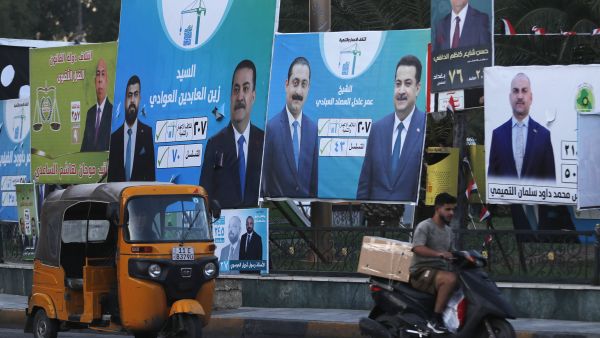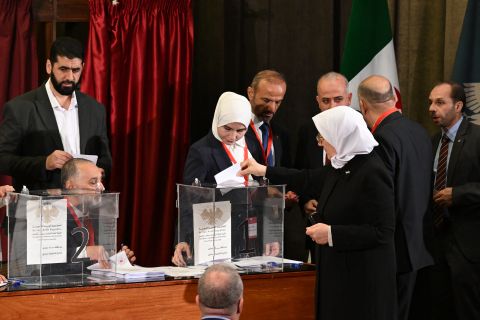ALBAWABA - Iraq is about to have its most expensive parliamentary election since 2003. Campaigns are spending more than ever before, which is causing a lot of people to question whether the election is fair and honest. Civil and independent groups say they can't be heard over parties with a lot of money from rich donors and strong power networks.
Iraq's streets have become a battleground of economic contrasts with elections coming up on November 11. There are big-budget rallies and fancy billboards, but there are also small posters that barely cover key areas.
Civil movements fight against big businesses
Smaller coalitions are having a hard time staying visible while candidates from the ruling party take over public places with expensive ads. The Alternative Coalition, which is run by MP Adnan Al-Zurfi, is a clear example of this difference. The coalition was able to print only 50 campaign posters in Baghdad and a few other provinces thanks to small donations from its members. This was not enough to pay for any big public events or meetings.
A candidate from the same alliance named Asema Al-Saleh said, "Political money not only rigs elections; it also weakens democracy itself." She told Erm News that vote buying and taking advantage of people's economic problems have turned Iraq's democracy into "a marketplace for influence." She called for real international oversight and steps to hold people accountable for illegal campaign funding.
"An Open Battle Over Money"
People who study and keep an eye on politics say that this election cycle is driven by money rather than ideas. Reports say that some big parties are spending hundreds of millions of dollars. In some districts, it costs more than 5 billion dinars to secure a seat in parliament.
Civil candidates say the race is a "open financial battle" that shuts down reformist and independent views and strengthens the power of Iraq's long-standing political elite.
The head of the Iraqi Center for Strategic Studies, Dr. Ghazi Faisal, told Erm News that the amount of money being spent now "has gone beyond all democratic norms." He also warned that the process could turn into "a business project for buying positions and power." He also said that the money that was spent on campaign ads could have been used to fight poverty and unemployment. He pointed out that more than 16 million Iraqis are still without jobs and more than 11 million live below the poverty line.
A Test for Democracy in Iraq
Independent watchdogs say that the campaign budgets for the big alliances have grown to tens of millions of dollars. A lot of this money is said to have been spent on ads and allegedly buying votes. Civil campaigns, on the other hand, use workers and social media to get their message out to voters.
There are less than three weeks left until the election, and smaller reformist groups are fighting to stay visible in a world dominated by money and power.
Observers say that if nothing is done, political money will once again control Iraq's government, putting real reform efforts on hold and turning elections into a battle for money instead of skill.
Iraq will either be able to hold an election that shows what the people want or one that is controlled by money and power in the coming weeks.










